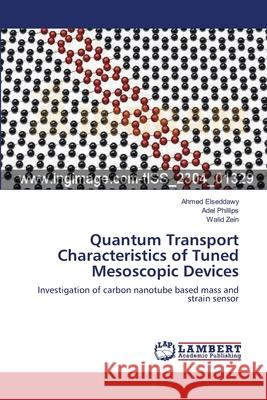Quantum Transport Characteristics of Tuned Mesoscopic Devices » książka
Quantum Transport Characteristics of Tuned Mesoscopic Devices
ISBN-13: 9783659341458 / Angielski / Miękka / 2013 / 100 str.
Nanoelectromechanical systems (NEMS) in which a nanomechanical resonator is coupled to a mesoscopic conductor, such as a single-electron transistor, form a new class of mesoscopic quantum systems in which there is a fascinating interplay between the electrical and mechanical degree of freedom. Coupling to nanomechanical degrees of freedom can modify the transport properties of mesoscopic conductors substantially, giving rise to a number of novel phenomena such as electron shuttling effects. Sensors continue to make significant impact in everyday life. With the advent of nanotechnology, research is underway to create miniaturized sensors. The application of carbon nanotubes in next-generation of sensors has the potential of revolutionizing the sensor industry due to their inherent properties such as small size, high strength, high electrical and thermal conductivity, and high specific surface area. Carbon nanotubes which are modeled under axial strain and torsion have predictable chirality dependent band gap changes in response to strain. The present thesis shows how we use carbon nanotub-based NEMS resonators as bio-molecules detection and also as strain sensor.











